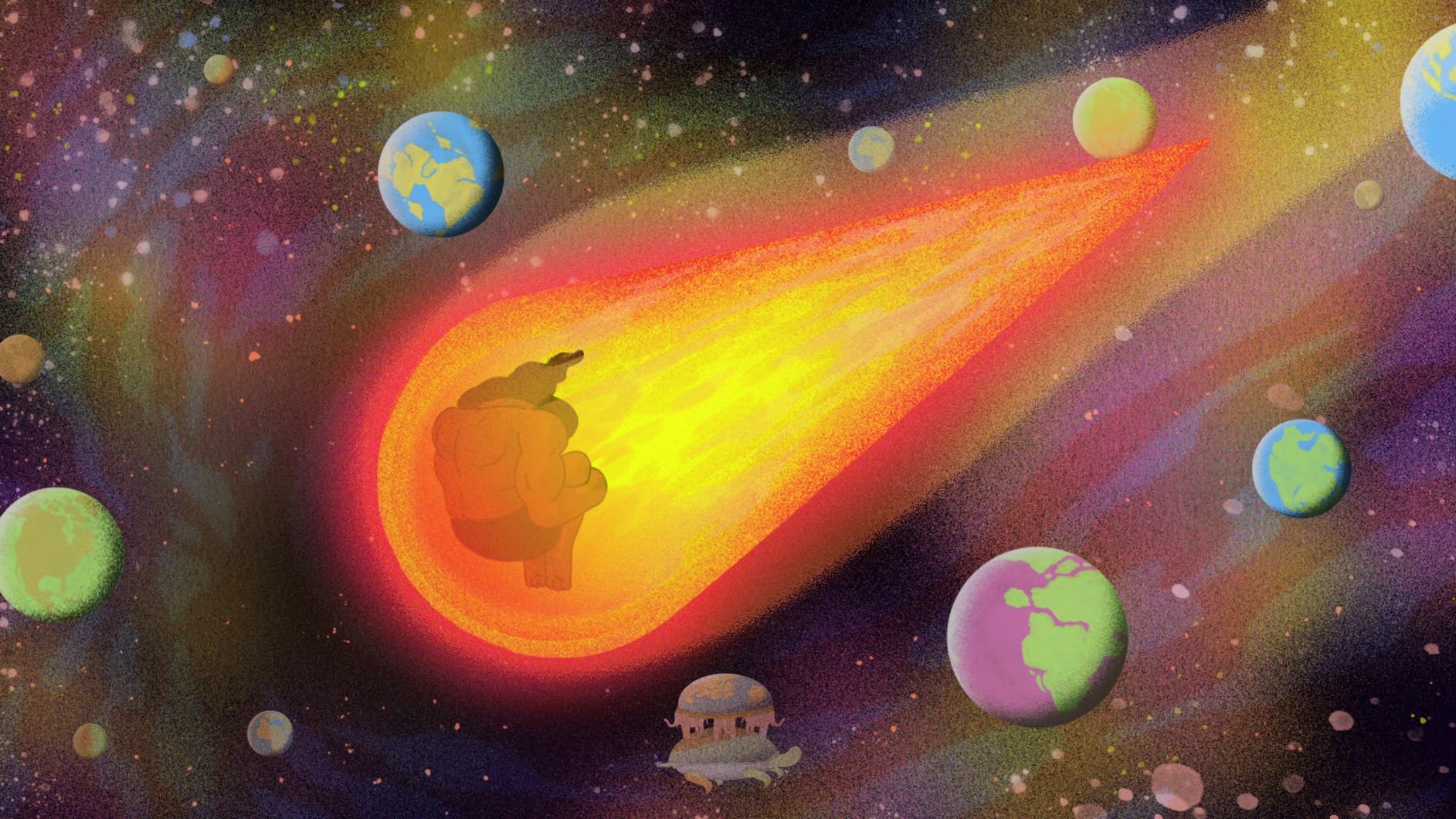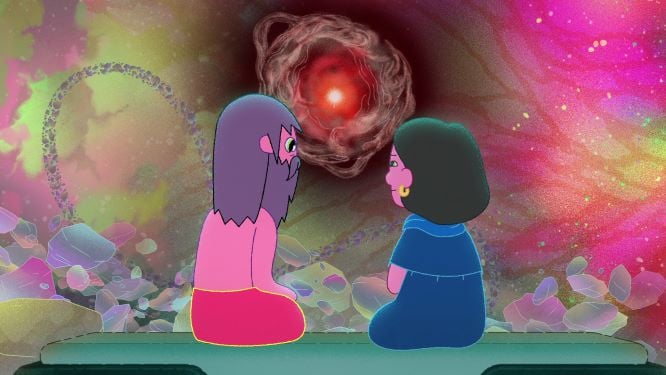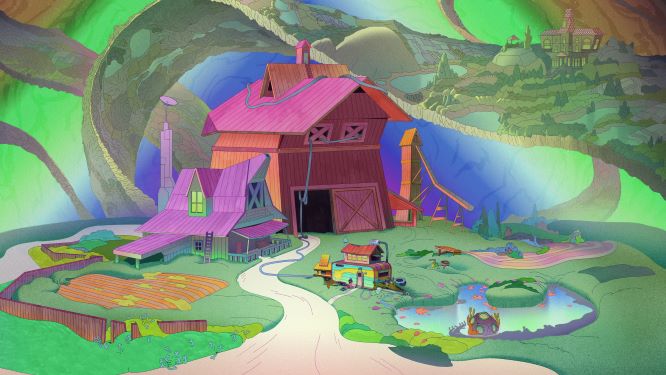‘The Midnight Gospel’: What Is the Netflix Animated Series About?
One of several new TV series interested in exploring “the simulation,” The Midnight Gospel, has been streaming on Netflix since Apr. 20, 2020. Reminiscent of shows like Bojack Horseman and Rick and Morty, the animated series for adults will bend your mind and break your heart — in all the best ways.
What is ‘The Midnight Gospel’ about, and what podcast is it based on?

The Netflix animated series The Midnight Gospel is a story — told in 8 episodes — about a guy named Clancy. Clancy is a “space-caster” (a podcaster in space, in case that wasn’t clear), who travels to various simulated universes to interview his space-cast guests.
Netflix’s Black Mirror and the popular action movie The Matrix also explore the concept of simulated reality, but The Midnight Gospel takes it to a different level. The animation, first of all, is next-level trippy.
The New York Times commented of the look of the show:
“The animation, by Titmouse, makes … Adventure Time look like photorealism.” (Pendleton Ward from Adventure Time co-created The Midnight Gospel). “It can be disorienting, but the dream logic reveals itself.”
However, the real emotional meat of The Midnight Gospel comes from the dialogue. Comedian/podcaster Duncan Trussell voices the main character Clancy, and his space-cast guests are voiced by real experts: “authors, spiritual guides and others that the comedian Duncan Trussell conducted for his podcast, The Duncan Trussell Family Hour.“
The narrative elements in each episode are filled in by extra dialogue and animation.
As Mashable pointed out, there’s a lot to learn from the experts interviewed in the episodes, for example:
Mortician and ‘death acceptance advocate’ Caitlin Doughty pops in as a friendly grim reaper to discuss the funeral-industrial complex. Dharma instructor Trudy Goodman becomes a valiant, horse-riding avenger for a talk on the importance of self-affirmation.
The new animated series from Netflix, ‘The Midnight Gospel’, is dark, fun, weird, and cathartic
However, the fast-moving animation combined with abstract discussions of spirituality can quickly get overwhelming. As Mashable argues, The Midnight Gospel deserves a rewatch or two; it can be hard to hear the message and take in all the moving parts (literally) at the same time.
If that sounds too intense, it’s not. The series is also full of comedy and includes several moments of cartoonish fun.
“Unlike its live-action sci-fi peers, The Midnight Gospel is neither dystopian nor depressing,” The Times reviewer explained. “It’s uplifting and strangely beautiful, using its simulated universes … as visual aids to detach the viewer from reality and to engage with the spiritual.”

Not to mention, exploring these deep and hard-to-talk-about subjects — and tackling them head-on — actually makes them a bit more accessible. It makes their intensity a bit softer.
As Mashable wrote of the series: while it’s painful at times, “it’s worth it.”
The Netflix cartoon closes out strong with the emotional episode 8, “Mouse of Silver”
However, the most poignant episode by far is the last one. The season 1 finale, titled “Mouse of Silver”, features Trussell’s mother, a psychologist named Deneen Fendig. (Sadly, she died of cancer in 2013). While this episode is a specific kind of tear-jerker, it’s by far the strongest in the series.
As a whole, The Midnight Gospel reminds us that these human experiences, like grief, fear of death, joy, addiction, love — just to name a few — are entirely that: human. They make us what we are, and for better or worse, we all go through them.
You just have to open your mind a bit in the first few episodes of the animated series — which are admittedly a bit strange.

“The show simply asks you to drink from its bottle, Alice-like, and shrink or expand to its level,” The Times reported.
But opening yourself up to the show’s message will be well worth your time. As The New York Times’ critic wrote of The Midnight Gospel:
… it’s expansive and full-hearted and cathartic. I cried at it, but the good cry that you get from a work of art that makes you see the pain and joy and absurdity of fleshly existence as inseparable parts of the same miracle.


